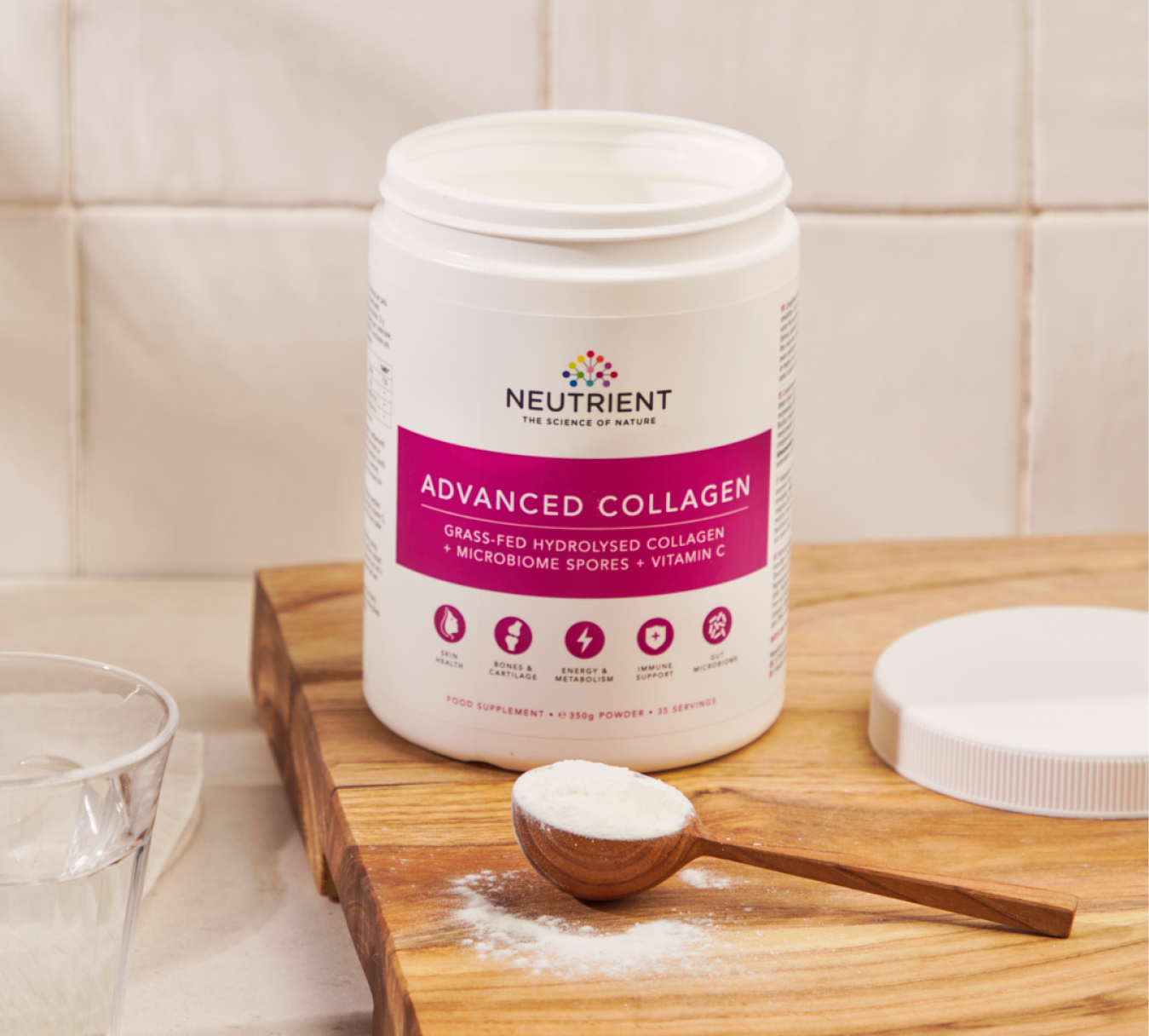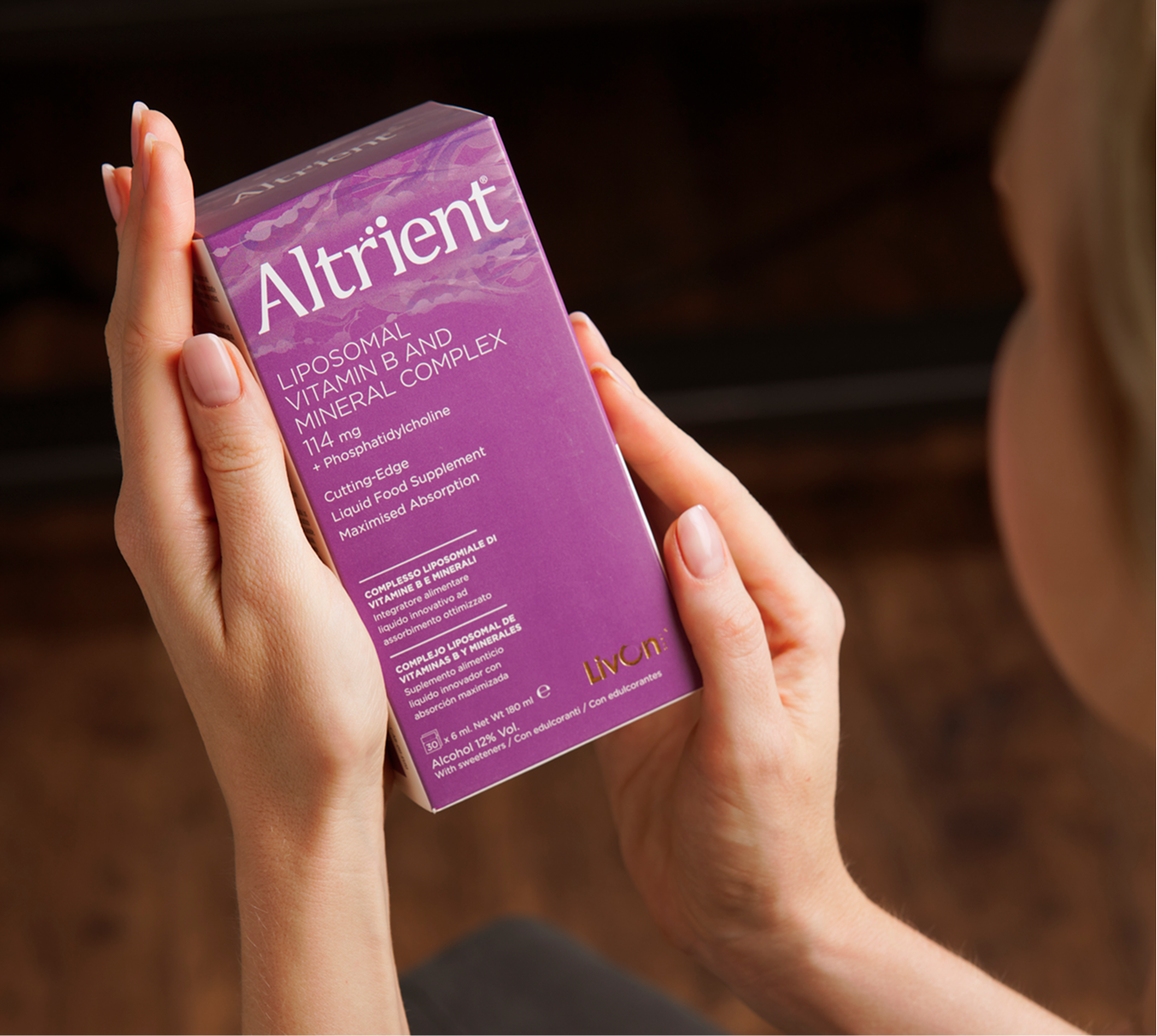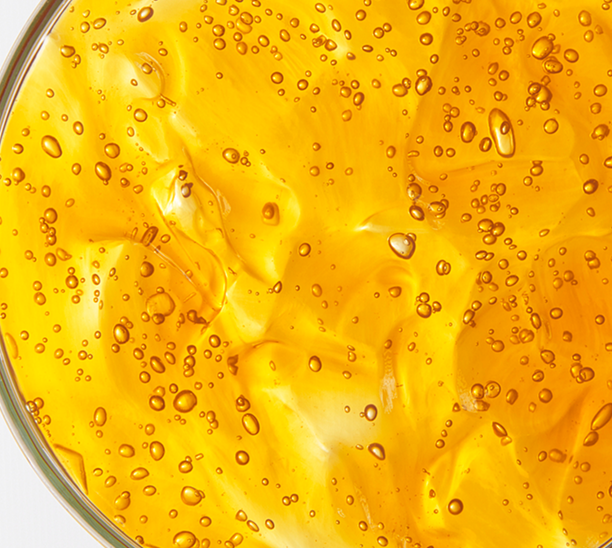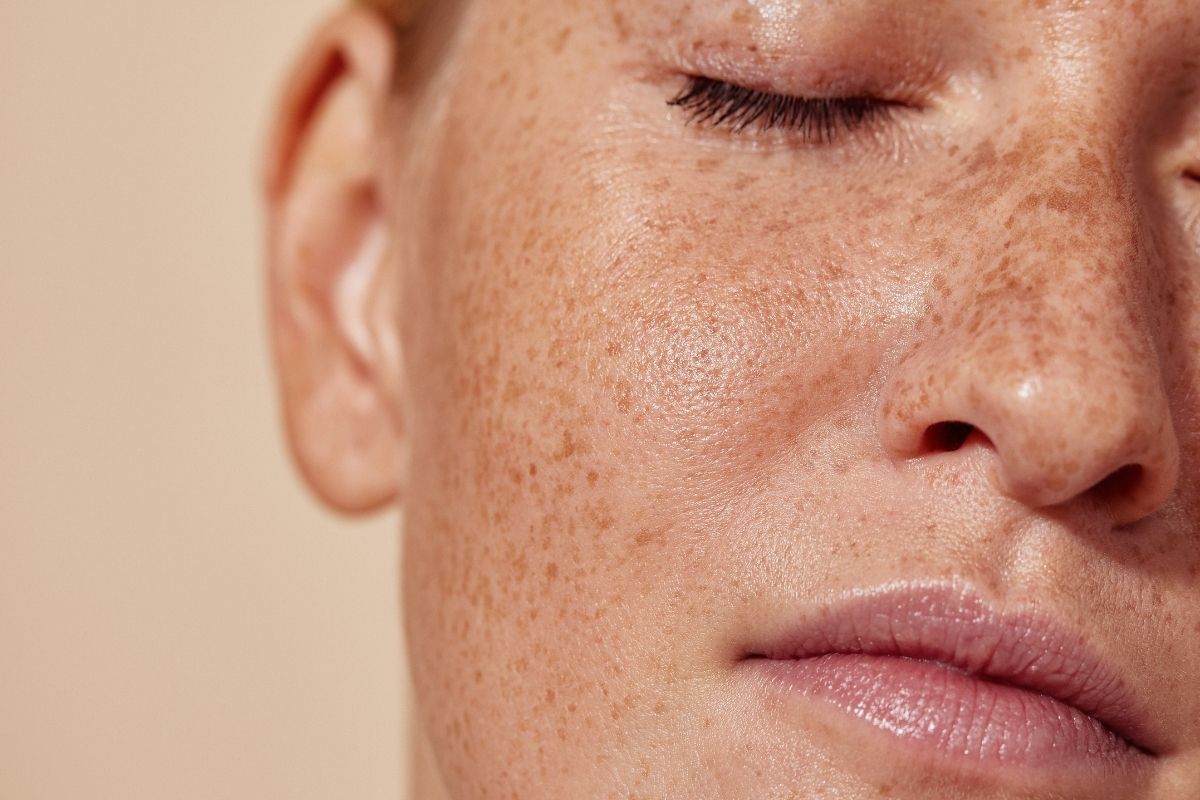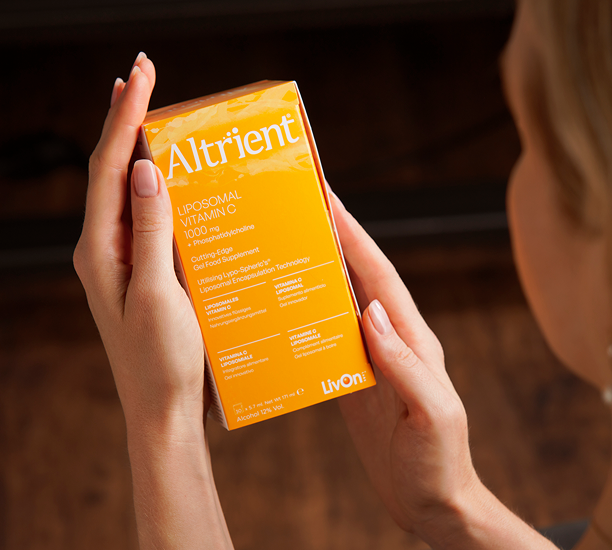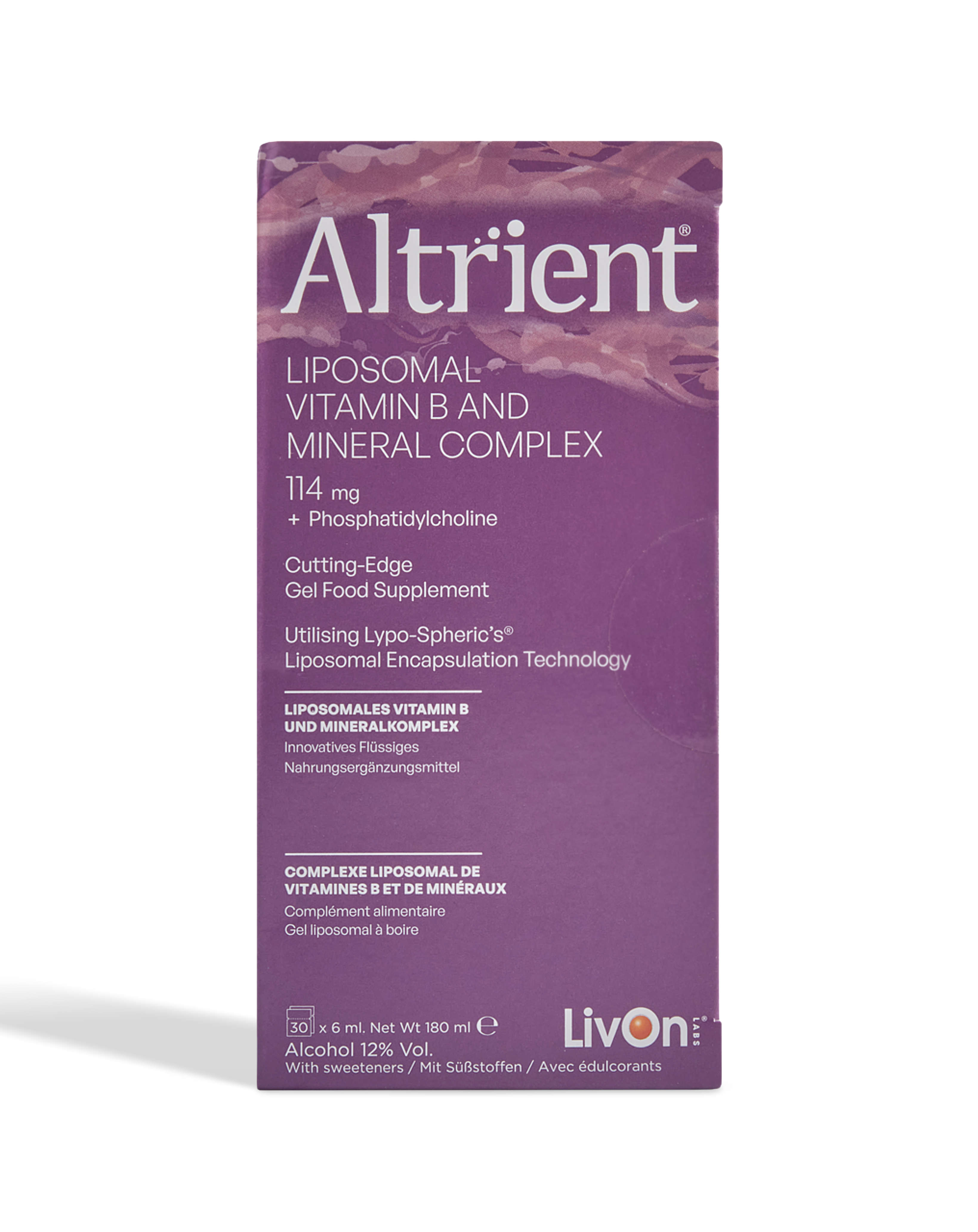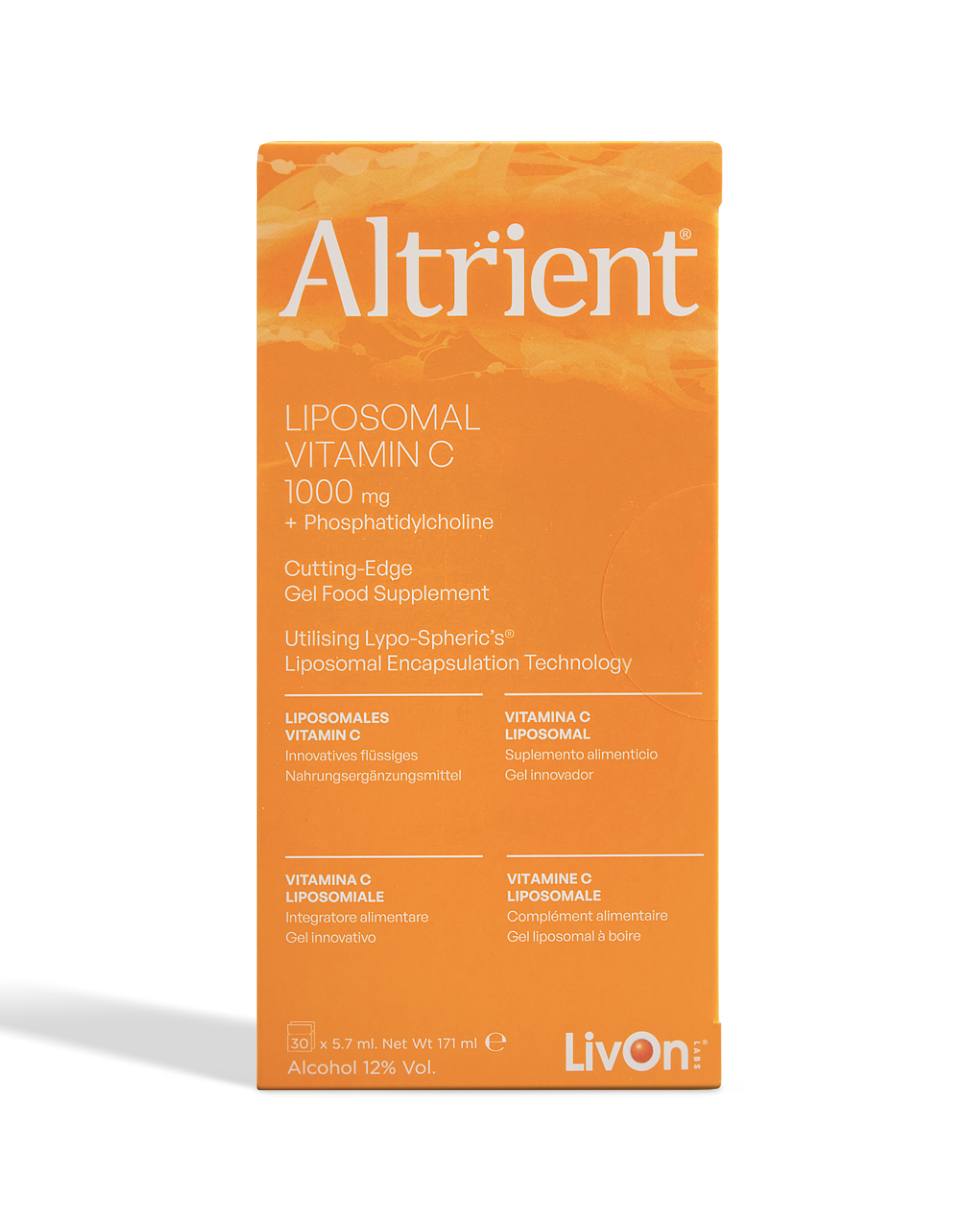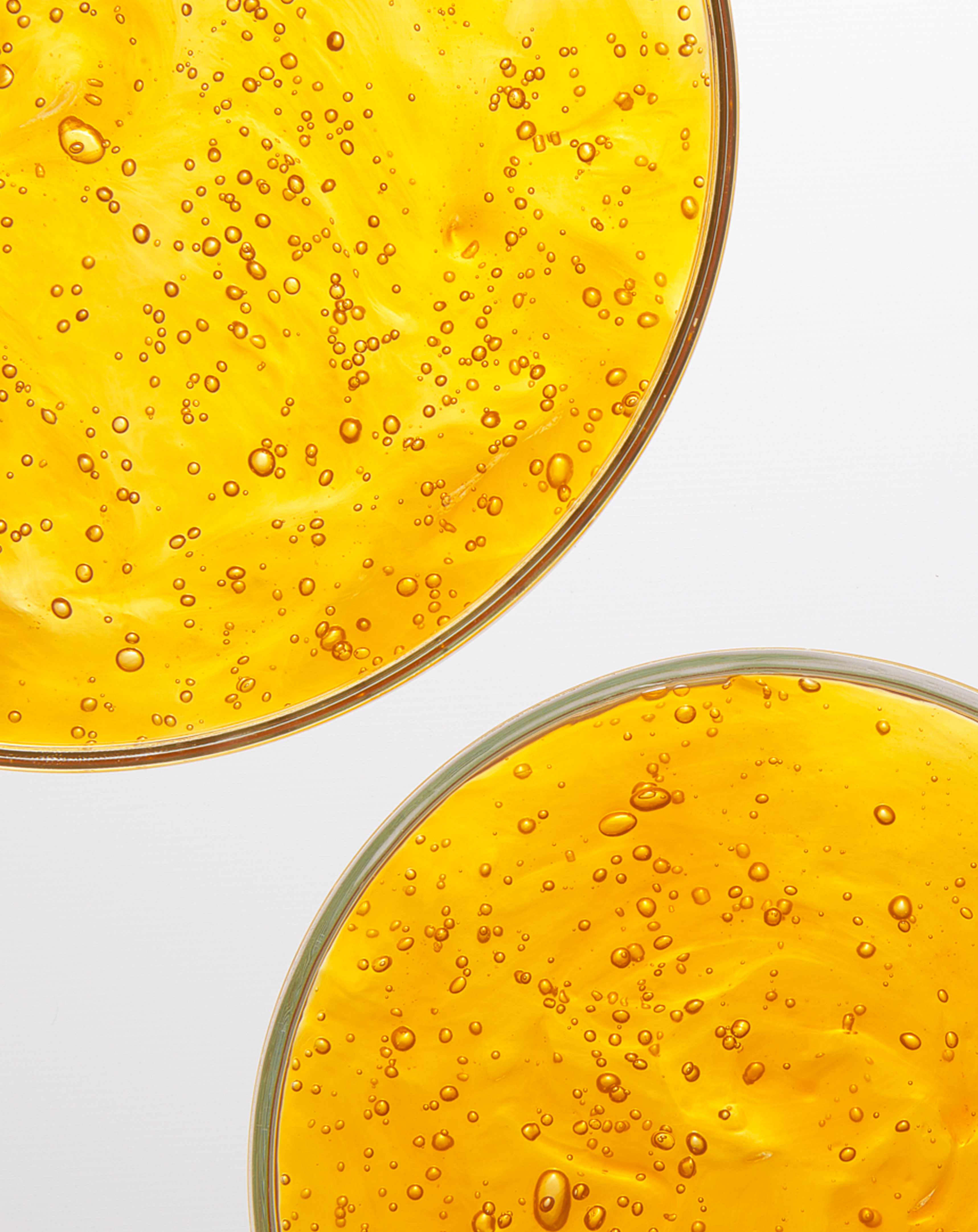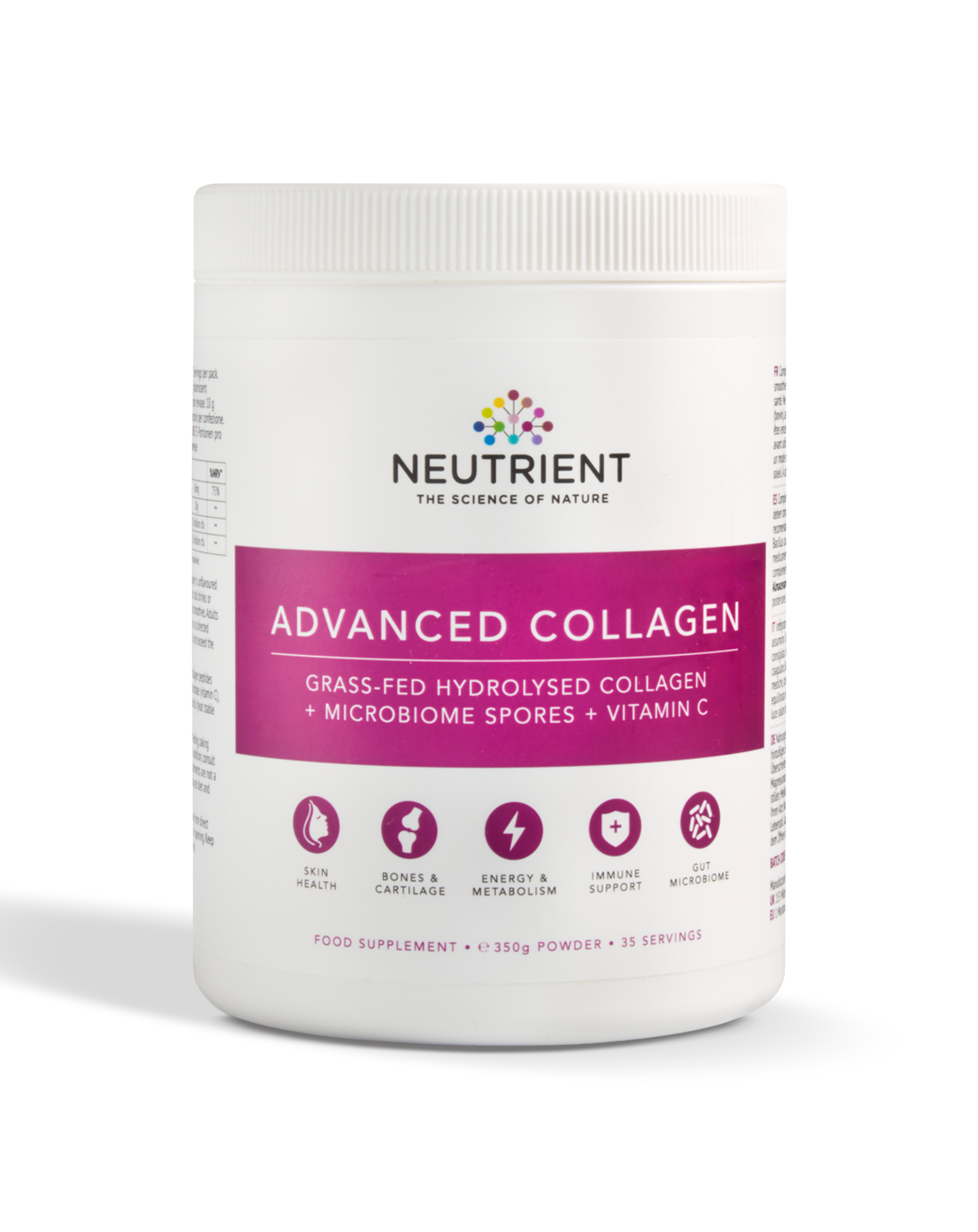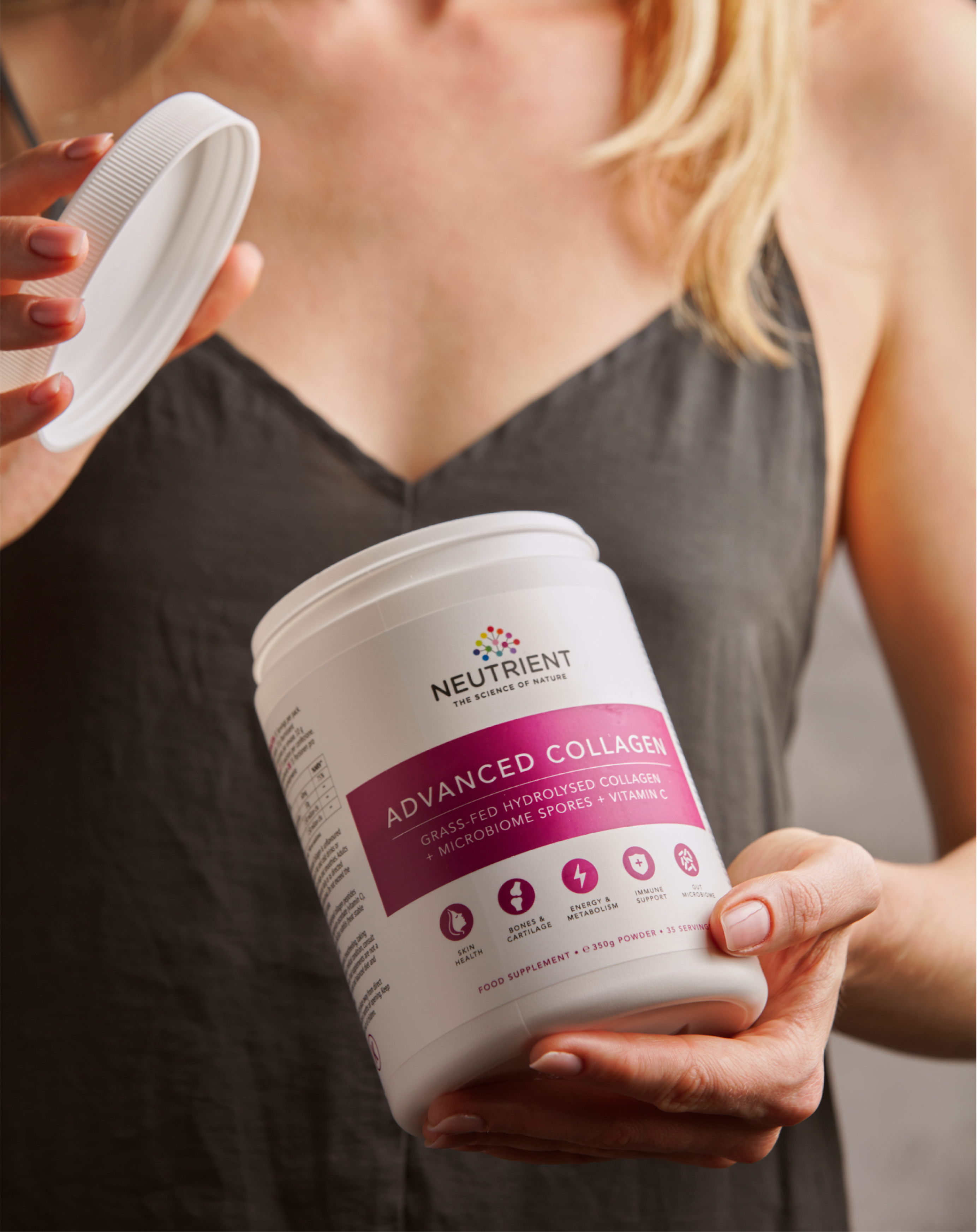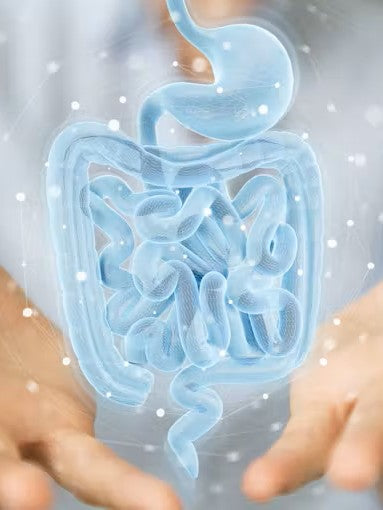GET IMPACT WITH A MULTI-STRAIN PROBIOTIC
More recently, scientific evidence suggests that taking a multi-strain probiotic which combines a range of different microbial species each with different effects against different pathogens, may have a broader spectrum of action and benefits compared to taking a probiotic supplying just a single strain.1 For those with compromised gut microbiomes, a course of probiotics might be the most promising option for putting the brakes on a whole range of troublesome ailments.
10 REASONS TO TAKE PROBIOTICS
1. Skin flare-ups
The skin has its own microbiome consisting of millions of bacteria, fungi and viruses. A disruption to this microbiome is associated with a number of common skin issues.2 Supplementing with a multi-strain probiotic formula may be a positive addition to a natural protocol for the therapeutic management of skin inflammation.
2. Traveller’s tummy
Travelling in some countries may expose you to pathogenic gut bacteria, the kind which produces nasty toxins that trigger diarrhoea and stomach cramps. Taking a course of probiotics, with at least 20 different strains per capsule, helps keep the gut replenished with friendly bacteria to outcompete any incoming foreign microbes in your food and water, helping prevent holiday diarrhoea.3
3. Course of antibiotics
Antibiotics are important for fighting out-of-control infections and in some cases can be lifesaving. However, antibiotics also take a good swipe at your gut microbiome. Evidence supports probiotic strains such as Lactobacillus rhamnosus for the prevention of antibiotic-associated diarrhoea.4
4. Steroid medications
Steroids are essential medication for many serious illnesses and the downside is that steroids contribute to many gut issues. Taking probiotics alongside steroid medications is a smart move to help counteract these side effects. Interestingly, research shows probiotics may help reduce the amount of steroids needed when treating inflammatory bowel diseases.5
5. Gut dysbiosis
Dysbiosis simply means an imbalance between friendly bacterial and pathogenic bacteria within your gut microbiome. When the balance is tipped in favour of pathogenic bacteria this dysbiosis triggers inflammation, digestive discomfort, low energy, low mood and immune irregularities, all symptoms associated with many illnesses. Taking a multi-strain probiotic with at least 20 different stains and prebiotics is the first step in helping rebalance your microbiome.
6. Unsettled digestion
Gut irregularities, bloating, wind and bouts of diarrhoea and constipation (IBS) are likely associated a bacterial overgrowth in the small intestines. Repopulating your gut with a mix of probiotics (Bifidobacterium longum, B.bifidum, B. lactis, Lactobacillus acidophilus, L. rhamnosus and streptococcus thermophilus)s has been shown to help ease many of these symptoms.6
7. Frequent UTI’s
Bacterial or yeast infections within the vagina, bladder or urethra are very common and regularly taking probiotics is a good way to safeguard against these irritating, painful and often recurring infections. Probiotics are considered beneficial for preventing recurrent UTIs in women and it’s L. rhamnosus and L. reuteri which clinical studies have shown to be the most effective.7
8. Feeling blue
It seems how we feel isn’t determined solely by the nervous system and your mood may actually be influenced by your gut microbiota via the gut-brain communication network. Results from research show the benefits of probiotics for mood issues such as anxiety and depression.8,9
9. Seasonal reactions
Hayfever could be a thing of the past if you take probiotics. In a recent study, a probiotic supplement containing L. reuteri, L. plantarum, L. rhamnosus, B. lactis and FOS was found to be effective at helping ease common hayfever symptoms.10
10. Food sensitivities
Weakened immunity is a key factor in allergic diseases and food sensitivities, which is often due to imbalanced gut microflora and a damaged intestinal barrier. Healing a leaky gut and replenishing friendly gut bacteria with a multi-strain high strength probiotic is the first step towards maintaining optimum immune function and a good strategy for coping with food intolerances.11,12
Share this article with your friends and family!
REFERENCES
1. C.M.C. Chapman, G.R. Gibson, I. Rowland. In vitro evaluation of single- and multi-strain probiotics: Inter-species inhibition between probiotic strains, and inhibition of pathogens. Anaerobe 2012;18, 4: 405-413. https://doi.org/10.1016/j.anaerobe.2012.05.004.
2. Boyajian JL, Ghebretatios M, Schaly S, Islam P, Prakash S. Microbiome and Human Aging: Probiotic and Prebiotic Potentials in Longevity, Skin Health and Cellular Senescence. Nutrients. 2021; 13(12):4550. https://doi.org/10.3390/nu13124550.
3. B. R. Goldin, S. L. Gorbach, Clinical Indications for Probiotics: An Overview, Clinical Infectious Diseases, Volume 46, Issue Supplement_2, February 2008, Pages S96–S100, https://doi.org/10.1086/523333.
4. Szajewska, H. and Kołodziej, M. (2015), Systematic review with meta-analysis: Lactobacillus rhamnosus GG in the prevention of antibiotic-associated diarrhoea in children and adults. Aliment Pharmacol Ther, 42: 1149-1157. https://doi.org/10.1111/apt.13404.
5. Dore, M.P., Rocchi, C., Longo, N.P. et al. Effect of Probiotic Use on Adverse Events in Adult Patients with Inflammatory Bowel Disease: a Retrospective Cohort Study. Probiotics & Antimicro. Prot. 12, 152–159 (2020). https://doi.org/10.1007/s12602-019-9517-0.
6. Yoon JS et all Effect of multi-speciesw probiotics on irritable bowel syndrome: a randomized , double-blind, placebo-controlled trial. J Tgastroenterol Hepatol 2013, epub Jul 5.
7. Falagas ME, Betsi GI, Tokas T, Athanasiou S. Probiotics for prevention of recurrent urinary tract infections in women: a review of the evidence from microbiological and clinical studies. Drugs. 2006;66(9):1253-61. doi: 10.2165/00003495-200666090-00007. PMID: 16827601.
8. Noonan S, Zaveri M, Macaninch E, Martyn K. Food & mood: a review of supplementary prebiotic and probiotic interventions in the treatment of anxiety and depression in adults. BMJ Nutr Prev Health. 2020 Jul 6;3(2):351-362. doi: 10.1136/bmjnph-2019-000053. PMID: 33521545; PMCID: PMC7841823.
9. Thangaleela S, Sivamaruthi BS, Kesika P, Chaiyasut C. Role of Probiotics and Diet in the Management of Neurological Diseases and Mood States: A Review. Microorganisms. 2022; 10(11):2268. https://doi.org/10.3390/microorganisms10112268.
10. Ried K, Travica N, Paye Y, Sali A. Effects of a Probiotic Formulation on Seasonal Allergic Rhinitis in Adults-A Randomized Double-Blind Placebo-Controlled Trial: The Probiotics for Hay Fever Trial. Front Nutr. 2022 May 23;9:887978. doi: 10.3389/fnut.2022.887978. PMID: 35677549; PMCID: PMC9169690.
11. Castellazzi AM, Valsecchi C, Caimmi S, Licari A, Marseglia A, Leoni MC, Caimmi D, Miraglia del Giudice M, Leonardi S, La Rosa M, Marseglia GL. Probiotics and food allergy. Ital J Pediatr. 2013 Jul 29;39:47. doi: 10.1186/1824-7288-39-47. PMID: 23895430; PMCID: PMC3733627
12. Hiippala K, Jouhten H, Ronkainen A, Hartikainen A, Kainulainen V, Jalanka J, Satokari R. The Potential of Gut Commensals in Reinforcing Intestinal Barrier Function and Alleviating Inflammation. Nutrients. 2018 Jul 29;10(8):988. doi: 10.3390/nu10080988. PMID: 30060606; PMCID: PMC6116138.
Read more

WHY IS NEUTRIENT LAUNCHING CURCUMIN+? As you may now, the team behind Neutrient are practitioners themselves. When treating clients that need additional support for their bones and joints, curcumin...

As we leave the colder winter days behind us, we want to leave behind dry, winter skin too! If you're looking to get bright, glowing skin for the summer season, incorporating vitamin C into your sk...


